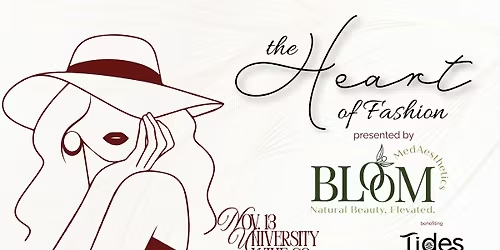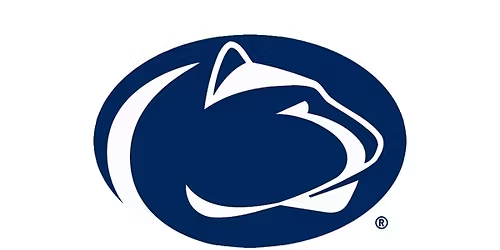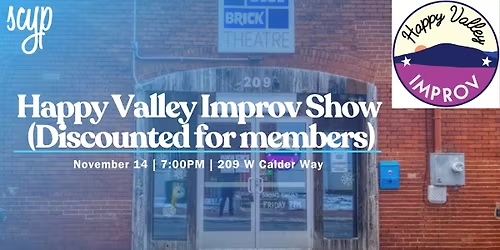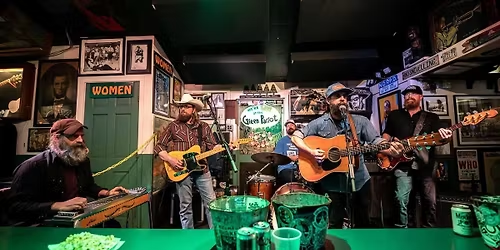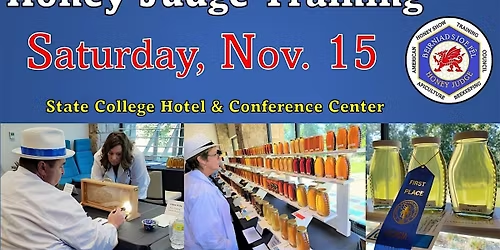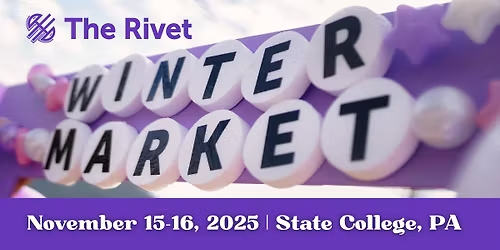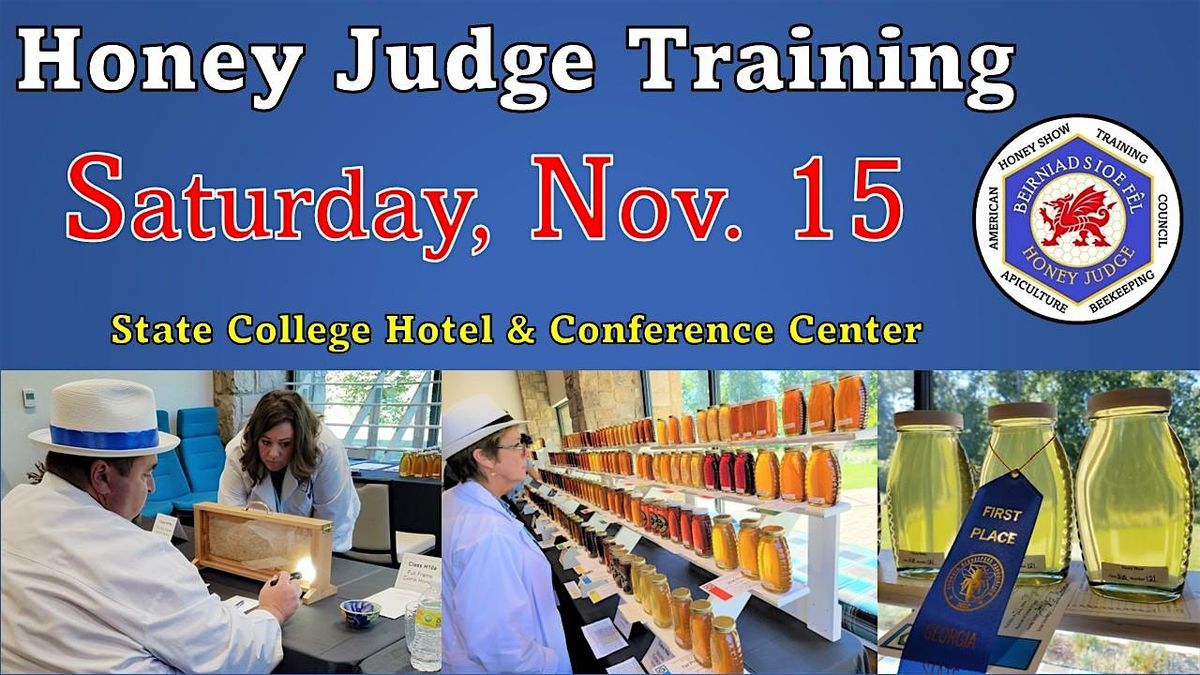2025 PA Botany Symposium • November 14–15
Schedule
Fri, 14 Nov, 2025 at 09:00 am to Sat, 15 Nov, 2025 at 04:30 pm
UTC-05:00Location
The Penn Stater Hotel & Conference Center | State College, PA

About this Event
Welcome to the 2025 Pennsylvania Botany Symposium registration site! Join us for two days: fascinating workshops and evening social on Friday; Saturday presentations and slideshow of your own cool finds; students sharing their research posters; and networking opportunities — all about native plants and their conservation. This in-person event will be held at The Penn Stater Hotel & Conference Center in State College, PA. Whether you're a seasoned botanist, just starting out, or a botanizer for fun, there's something for everyone at this symposium. Don't miss this chance to connect with fellow plant enthusiasts and expand your knowledge of Pennsylvania's diverse flora. See you there!
As in years past, the Pennsylvania Botany Symposium offers full-day and afternoon workshops on Friday, November 14 — a total of four full day and three half day workshops — followed by an evening social that includes a juried student poster session, exhibitors, appetizers and cash bar; and this year there will also be a special presentation that evening by Pennsylvania Lenape Nation member Shelley DePaul: Lenape Plant Practices: A Holistic Exchange.
Saturday, November 15 is a full day of expert, engaging presentations geared for an audience of all adult levels. The highest honors awarded to juried student posters will be announced, and there will be a narrated slideshow of submitted "Cool Finds!" Share your photos — Image submissions and the form are due no later than October 31.
See the Symposium Agenda, below, for details about the Friday workshops, evening social and Saturday presentations.
There are two separate levels of fees for all attendance options, one for students and another for non-students (general admission). Be sure to choose the correct payment option for you!
Note that all workshop registration fees include the Friday evening social, and Saturday presentations with lunch included. Additional registration rates for students and nonstudents include: the Friday evening Social and Saturday presentations with lunch, and another for Saturday attendance and lunch only.
Students, prepare your research posters now! View the and The submission deadline is October 20.
Become a PA Botany Symposium Sponsor! There are sponsorship benefits for higher contributors, such as a one night in a complimentary hotel room, attendance and exhibitor table space.
Become a PA Botany Symposium Exhibitor! The rate includes a draped and skirted 6-foot table in the event’s social hall. The Friday evening social takes place there, as does Saturday lunch in the room next to it, where people can visit during Saturday breaks and lunch. The rates are The rate includes a draped and skirted 6-foot table in the event’s social hall. The Friday evening social takes place there, as does Saturday lunch in the room next to it, where people can visit during Saturday breaks and lunch. The rates are $95/ nonprofits and $150/ for-profits.
A special PA Botany Symposium room rate is available to attendees who stay at the Symposium's venue, the Penn Stater Hotel & Conference Center, Thursday through Saturday nights, November 13–15, 2025. Available rooms are limited and the deadline for getting this event rate is midnight October 13, 2025. The cost is only $149 plus taxes when you use our guestroom group code: BOTA25. Please make your room reservations by , https://www.thepennstaterhotel.com, then selecting BOOK NOW and adding the Group code to get the discounted room rate.
Get Pennsylvania Botany T-shirts, note card sets, art prints and more! Purchase them in-person at the Symposium. Place bids and take home a variety of special items in the silent auction, too!
We're unable to accept credit cards at the Symposium, so be sure to bring extra cash or checks! There is also an ATM at the Penn Stater.
Symposium Two-Day Agenda
🕑: 09:00 AM - 04:30 PM
Friday Workshops, Full and Half Day
🕑: 09:00 AM - 12:30 PM
Botanical Illustration • Full Day Workshop
Host: Sandra Budd, Instructor
Info: The Botanical Illustration workshop begins with an introduction to botanical illustration, presented through artists samples and various demonstrated techniques. In the morning, plant anatomy will be the focus of the drawings. Participants will explore shading techniques in graphite pencil. Through the lens of a microscope participants will explore contextualizing details in a scientific study. In the afternoon, participants will explore color layering with color pencil. In this session a pencil drawing created in the morning or a pre-drawn illustration will be transferred onto toned paper. Illustration composition will be emphasized throughout this session. Those experienced with watercolors may bring all of their own supplies to paint in the afternoon session if they like — with the understanding that this is not a watercolor instruction class.
🕑: 09:00 AM - 04:30 PM
A Consulting Botanist's Toolkit • Full Day Workshop
Host: Seven different professionals
Info: This full-day workshop will instruct participants in the skills needed to correctly conduct plant surveys, document findings for the Pennsylvania Natural Heritage Program (PNHP), prepare reports to submit to the Department of Conservation and Natural Resources (DCNR), and prepare museum quality plant voucher specimens. The day will include a mix of classroom instruction, discussion, and demonstration. For bios of all seven instructors, go to https://pabotany.org/2023-symposium-instructor-bios/
🕑: 01:30 AM - 04:30 PM
Conservation Horticulture for Safeguarding Pennsylvania Rare Plants • Half Day
Host: Cheyenne Moore and Peter Zale, PhD, Instructors
Info: Botanic gardens and arboreta have embraced the need to support conservation of rare native plants. In this workshop we will discuss what conservation horticulture is and provide examples of how it is being used to safeguard rare plants in Pennsylvania. We’ll present best practices for numerous aspects of conservation horticulture, including plant and seed collection, documentation, different types of seed dormancy and how to overcome them, additional types of plant propagation, cultivation, and genetic considerations of working with rare species. The workshop will also include a hands-on opportunity to process, accession, and plant some native plant seeds that can be taken for your home garden. Useful resources will be highlighted, and participants are encouraged to come with questions!
🕑: 09:00 AM - 04:30 PM
Geology for Botanists • Full Day Workshop
Host: Noah Yawn, Instructor
Info: Geology and botany intersect at the surface and often go hand in hand, especially when considering species distribution patterns, biophysiography, and ecological processes. Join us for a full-day workshop on “geobotany”, an explorative session focused on Pennsylvania’s rich geologic history and its relationship with the diverse flora found here from an ecologist’s perspective. We will first focus on fundamental geologic concepts ranging from geologic time, principles, and physiography, and take a “tour” of Pennsylvania, ranging from serpentine barrens, calcareous ravines, sandstone cliffs, mafic meadows, and glacial sand spits. Rock types, mineral assemblages, and their exposure and relationship to plant communities and specialist species will be a central focus.
🕑: 01:30 PM - 04:30 PM
The Hidden World of Lichens • Half Day Workshop
Host: James Lendemer, PhD, Instructor
Info: Join us for a workshop to explore the hidden world of lichens, a dimension of Pennsylvania’s botanical diversity that is ever-present but obscured by mystery. We will cover the biology and ecology of lichens, resources for identification, key terms and characters for field identification, and learn some of the common species you are likely to see on a walk in the woods or in your own backyard.
🕑: 01:30 PM - 04:30 PM
How to Tackle Teaching Plant Life Cycles • Half Day Workshop
Host: Emily Sessa, PhD, Instructor
Info: Life cycles are a fundamental aspect of organismal biology, and a cornerstone of most introductory biology and botany courses. Despite the importance of this topic and its ubiquity in the lab and lecture hall, plant life cycles can be a challenging subject to teach and students are often bewildered by the extensive terminology and unfamiliarity of the alternation of generations life cycle that plants undergo. During this workshop, the organizers and participants will share and discuss teaching methods for this topic, with the goal of providing everyone with a range of tools and approaches for tackling plant life cycles in their classes. We will discuss learning objectives, critical concepts, and assessment methods, and participants will be invited (if they wish) to share their own slides and/or other materials related to teaching plant life cycles, so that we can benefit from each other’s experiences. The primary focus: sexual reproduction and alternation of generations in land plants
🕑: 09:00 AM - 04:30 PM
Recognition of the Hawthorns (Crataegus) of Pennsylvania • Full Day Workshop
Host: Ron Lance, Instructor
Info: Recognition of a Crataegus at generic level is a simple botanical effort, yet determination to species often requires greater initiative. Through images and specimen examinations of Crataegus taxa that are known from Pennsylvania, a condensation of the 235 taxa accredited to the state will be shown to conform satisfactorily to a simpler assemblage of about 35 species. A key maneuver in hawthorn recognition utilizes the morphological similarity of closely related infrageneric groups (Series), 15 of which are known for Pennsylvania. There are also several putative interserial hybrids which have intermediate characters. The most significant and broadly defined species will be discussed in detail for benefit of understanding their identification, taxonomy, and distribution.
🕑: 04:30 PM - 07:30 PM
Friday Evening Social: Poster Session, Exhibitors & Special Presentation
Info: Be sure to attend this evening's activities and fun! In the first two hours, enjoy complimentary appetizers and a cash bar while reviewing the juried student research posters on display; meeting our exhibitors; bidding on donations in our silent auction; and selecting even more take-home items for sale at the PA Botany table. At 6:30 p.m. Shelley DePaul, Lenape Nation of Pennsylvania Clan Mother, Keeper of Language and Treaty Signer Liaison, will share her presentation: Plant Practices: A Holistic Exchange.
🕑: 09:00 AM - 04:00 PM
Saturday Welcome and Presentations
🕑: 09:10 AM - 10:00 AM
Keynote • For the Love of Plants: Botany in the Afterlives of Colonialism
Host: Banu Subramaniam, PhD, Presenter
Info: Why are plants deemed native and foreign, male and female? I argue that histories of colonialism and their foundational language of gender, race, sexuality, and nation have fundamentally shaped the language, terminology, and theories of the modern plant sciences. Plant sciences and botanical theories remain grounded in the violence of their colonial pasts. In wrestling with these difficult origins, I develop an interdisciplinary approach to retheorize plant biology, in particular, plant migration and reproductive biology. I explore new biological frameworks that harness the power of feminist thought in order to reimagine and reinvigorate our love of plants.
🕑: 10:00 AM - 10:40 AM
Understanding Appalachian Forests, Lichens and Ecosystem Health ...
Host: James Lendemer, PhD, Presenter
Info: Full title: Understanding Appalachian Forests, Lichens and Ecosystem Health Informs New Perspectives on Biodiversity and Conservation. Forests and the wealth of biodiversity they support have been studied for centuries. Understanding the constellation of relationships and processes that underlay these ecosystems has emerged as a focus. Especially for informing conservation and management efforts in the face of increasingly fast and large-scale changes. Yet, botanical diversity in the form of cryptogams (algae, bryophytes, fungi, lichens) has been comparatively little studied, leading to significant gaps in both knowledge and practice. This presentation will draw on the results of more than twenty years of research to outline a new perspective on biodiversity and conservation for our beloved eastern deciduous forests.
🕑: 10:40 AM - 11:10 AM
BREAK. See Exhibitors and Student Research Posters in Social Hall
🕑: 11:10 AM - 11:50 AM
The Flora of the SE US: Reinventing it as a Foundation for Conservation
Host: Scott Ward, Presenter
Info: What good is a flora if it can’t be understood? How can rare species be conserved if they can’t be properly identified? How can I learn the plants growing in my region, and how can I distinguish them from similar species? These questions, and many more, are central to the mission of The Flora of the Southeastern United States (FSUS) project, where we are “reinventing” the ways in which information from floras (e.g., dichotomous keys) can be relayed to a broad community of botanists, ecologists, naturalists, field biologists, land managers, master gardeners and outdoor enthusiasts. Through this work, we aim to demystify the many technical aspects of botany through clearer language, better pictures and ID notes, illustrated dichotomous and multi-access keys and continued collaboration with regional botanists. NC Botanical Garden Research Botanist Scott Ward will discuss The Flora and ways in which you can help our team to further develop its PDF, FSUS website, and FloraQuest mobile apps.
🕑: 11:50 AM - 12:30 PM
Herbarium Specimens Are More Than Meet the Eye
Host: Mason Heberling, PhD, Presenter
Info: With over 400 million specimens collected by many thousands of botanists over nearly five centuries worldwide, herbaria (collections of preserved dead plants) comprise a critical resource for understanding the world around us. Historically, these collections were primarily used to understand, describe, and organize the tree of life (taxonomy and systematics). While these longstanding uses remain critical in modern research, the use of museum collections has deepened and expanded in unanticipated ways. Established well before the current era of digital data and molecular biology, herbarium specimens are now being used in ways not even fathomed a century, or even decades, ago. We will explore the past, present, and future of herbaria and highlight his ongoing research using collections to understand plant responses in a time of rapid environmental changes. As we enter the Anthropocene, herbaria have likewise entered a new era with enhanced scientific, educational, and societal relevance.
🕑: 12:30 PM - 01:30 PM
Lunch, Exhibitors, Student Posters, Last Auction Bids in Social Hall
🕑: 01:30 PM - 02:10 PM
The History and Systematics of Hawthorns (Crataegus) in Pennsylvania
Host: Ron Lance, Presenter
Info: There have been at least 235 Crataegus taxa suggested native or naturalized in Pennsylvania. The great majority of these names originated from Charles Sargent and William Ashe between 1900-1910. Today, only about 35 species are recognized for the state, absorbing 200 names in a considerable synonymy. The history of Pennsylvania’s hawthorn taxonomy and its development into the current state of acceptance requires detailed examination of species protologues and specimens, coupled with continued field work to support validity of recognizable taxa and recording their distribution. Using systematics and its application toward conservation initiatives poses a particularly vexing issue in Crataegus, due to an abundance of ambiguous species distinctions.
🕑: 02:10 PM - 02:20 PM
Student Poster Awards
🕑: 02:20 PM - 02:40 PM
BREAK in Social Hall with Winning Posters and Silent Auction Results
🕑: 02:40 PM - 03:20 PM
Cool Finds Slideshow —YOUR Cool Finds!
Host: Roger Latham, PhD, Presenter
Info: This slideshow features unusual, exciting or otherwise noteworthy plants, stands, or community somewhere in the Keystone State. Open to all, not just symposium attendees, participants have submitted one or more images of their discoveries made within the last two years that haven’t been shown in previous biennial Botany Symposia.
🕑: 03:20 PM - 04:00 PM
From Spores to Forests: Climate Change and the Hidden Life of Ferns
Host: Emily Sessa, PhD, Presenter
Info: Ferns play a vital role in forest ecosystems of the eastern United States, yet a critical stage of their life cycle – the tiny, nutritionally independent gametophyte – is often overlooked. The gametophyte is the sexual, establishment phase of the life cycle, and is potentially highly sensitive to shifts in temperature and moisture, making gametophytes a critical window into how climate change may shape fern survival and reproduction. This talk will explore how polyploidy, a common feature in ferns, may mediate the effects of climate change on fern gametophytes, drawing from new research on the woodfern genus Dryopteris, whose species are ubiquitous members of the northeast temperate fern flora. Understanding the interplay between climate, gametophytes, and ploidy level is essential for improving our basic understanding of fern biology, and for predicting broader forest community changes in the decades ahead.
Where is it happening?
The Penn Stater Hotel & Conference Center, 215 Innovation Boulevard, State College, United StatesEvent Location & Nearby Stays:
USD 75.00 to USD 300.00

